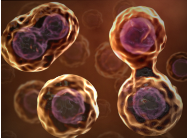- Escambia County Public Schools
- Biology End of Course Review
- SC.912.L.16.17 Mitosis and Meiosis
Science
Page Navigation
- Home
- Elementary Science Curriculum
-
Biology End of Course Review
- Biology EOC Review
- SC.912.N.1.1 Scientific Method
- SC.912.L.18.12 Properties of Water
- SC.912.l.18.9 Photosynthesis and Cellular Respiration
- SC.912.L.18.1 Macromolecules
- SC.912.L.16.17 Mitosis and Meiosis
- SC.912.L.16.3 DNA Replication
- SC.912.L.14.3 Cell Structure
- SC.912.L.14.1 Cell Theory
- SC.912.L.17.20 Human Impact
- SC.912.L.17.9 Food Webs and Energy Transfer
- SC.912.L.17.5 Population Size
- SC.912.L.16.13 Reproductive System
- SC.912.L.16.10 Biotechnology
- SC.912.L.14.52 Immune System
- SC.912.L.14.36 Cardiovascular System
- SC.912.L.14.26 The Brain
- SC.912.L.14.7 Plant Structure
- SC.912.L.16.1 Genetics
- SC.912.L.15.13 Natural Selection
- SC.912.L.15.8 Origin of Life
- SC.912.l.15.6 Classification
- SC.912.L.15.1 Evolution
SC.912.L.16.17 Mitosis and Meiosis
ORGANISMS, POPULATIONS AND ECOSYSTEMS
CLASSIFICATION, HEREDITY AND EVOLUTION
WHAT YOU NEED TO KNOW...
-
- You need to know the differences and similarities in the processes of mitosis and meiosis and relate these to the processes of sexual and asexual reproduction.
- You need to know how mitosis and meiosis lead to genetic variation.
- You need to know the relationship between mutation, cell cycle, and uncontrolled cell growth potentially resulting in cancer.
- You need to know the cell cycle, including the process of mitosis and be able to explain the role of mitosis in the formation of new cells and its importance in maintaining chromosome number during sexual reproduction.
EXAMPLE ONE
-
Mitosis and meiosis are processes involved in cellular reproduction. Which of the following describes and event that results from mitosis but NOT meiosis?
A. two stages of cell division
B. replication of cellular genetic material
C. daughter cells that are identical to the parent cell
D. four daughter cells that are produced from each parent cell
EXAMPLE TWO
-
How are sexual reproduction and asexual reproduction different from each other?
A. sexual reproduction requires two parents and asexual reproduction requires only one parent
B. asexual reproduction requires two parents and sexual reproduction requires only one parent
C. mutation rates are lower in sexual reproduction than in asexual reproduction
D. asexual reproduction occurs only in multicellular organisms
EXAMPLE THREE
-
Which type of reproduction leads to increased genetic variation on a population?
A. Parthenogenesis
B. asexual reproduction
C. Sexual reproduction
D. Vegetative reproduction
EXAMPLE FOUR
-
Which of the following phrases best describes cancer?
A. absence of cyclins in the DNA
B. miltiple gene mutations on a chromosome of DNA
C. uncontrolled cell growth caused by mutations in genes that control the cell cycle
D. presence of genetic defects caused by hereditary disorders
EXAMPLE FIVE
-
Which of the following phases of mitosis is represented by the diagram below?
A. prophase
B. metaphase
C. anaphase
D. telophase
EXAMPLE SIX
-
A scientist wants to change the DNA of a sexually reproducing organism and have the new DNA present in every cell of the organism. In order to do this after fertilization, she would change the DNA in which of the following?
A. zygote
B. placenta
C. testes of the father
D. ovaries of the mother
EXAMPLE SEVEN
-
Which row in the chart below indicates the correct process for each event indicated?
A. row 1
B. row 2
C. row 3
D. row 4
EXAMPLE EIGHT
-
The diagram below shows a cellular process that occurs in organisms.
What is the name of this process?
A. meiosis
B. mitosis
C. endocytosis
D. phagocytosis
EXAMPLE NINE
-
The diagram below shows homologous chromosomes during prophase I of meiosis.
Which of the following correctly describes the process being illustrated?
A. mutation in which the DNA content of the gene is altered
B. segregation of sister chromatids
C. condensation and segregation of alleles
D. crossing-over in which alleles are exchanged
EXAMPLE TEN
-
Which of the following best describes meiosis?
A. It is carried out in all tissues that require cell replacement.
B. It occurs only in cells in the reproductive structures of organisms.
C. It happens in all tissues except the brain and spinal cord.
D. It is the first stage of mitosis.
EXAMPLE ELEVEN
-
The diagram below shows two strawberry plants.
Plant 2 is produced asexually from Plant 1. If the leaf cells of Plant 1 have 56 chromosomes, how many chromosomes will be found in the leaf cells of Plant 2?
A. 14
B. 28
C. 56
D. 112
MITOSIS, MEIOSIS, AND SEXUAL REPRODUCTION
PHASES OF MITOSIS
PHASES OF MEIOSIS
CANCER
MITOSIS VS MEIOSIS
IN YOUR BOOK
-
General Biology - Sections 5.1 and 5.2, pgs. 134-143, and Sections 6.1 and 6.2, pgs. 168-176
Honors Biology - Sections 10.1 and 10.2, pgs. 234-244, and Section 11.4 pgs. 275-285







